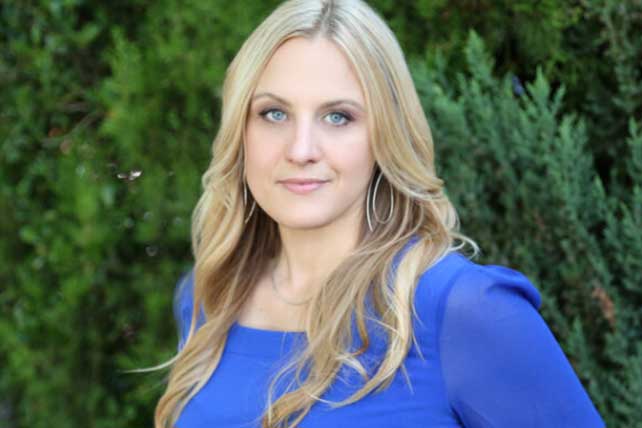One of the real paradoxes of the Trump era has been watching evangelical leaders — who advocated for morality in the public square and condemned Bill Clinton in the 1990s — embrace Donald Trump despite his misconduct.
The things I heard about Bill Clinton and the importance of character — those were the headlines everybody was hearing. They were also the words that were being spoken about in my home and were a part of the way I was being taught to think. To fast forward about 20 years later and see the community, the same high-profile leaders, responding to transgressions by Donald Trump in such a different way was very stark.
I talk in the book about how I was told to cover up and be modest and not tempt men and save myself for marriage. I did everything I was supposed to do. It’s quite something to be so carefully protected and sheltered and policed around your sexuality and your body. And then again, to have that same community respond so differently when someone like Donald Trump crosses those lines in such a dramatic fashion. I think betrayal would be a good word for it.
As a reporter, how was it for you to write this book, given that it is so personal?
I had come across the mostly online, but growing exvangelical deconstruction world in the course of reporting on Trump. I heard something in that movement that I recognized from my own life, though I had made my own complicated journey out of evangelicalism well before covering the Trump campaign.
I started paying attention to these online communities and became fascinated with them. I felt like there was a shared experience there that was forcing a lot of people from the evangelical world to reflect on what that movement meant to them. I wanted to write about it, but it would feel weird to write about it at a total remove because I know about it so intimately.
You write about some really painful moments — about how your parents cut off your grandfather when he came out as gay after your grandmother died and about their lack of empathy when you felt suicidal as a teen. Yet there is a great deal of empathy in this book. Where did that sense of grace toward them come from?
I can’t hate everything about my childhood or my community and be OK with myself. I came from that world and do think there were good things in that world. Some people might not like to hear that about evangelicals. But there wouldn’t be so many people who are part of evangelicalism if there wasn’t something redeeming or valuable there. I’ve had to step back and ask, what was painful and difficult? What was damaging? And then what was good, what can be redeemed? What can, if nothing else, make me a stronger person, a better person?
One thing I took from my evangelical background is an interest in thinking about what’s good and what’s right and in how to live. I was taught about Jesus and the self-sacrificial nature of love that Jesus exemplifies, whether you believe in that story or not. Those are really beautiful values I want to hold onto.
I don’t think we can have a functional society if everybody just prioritizes themselves. To me, one of the most important ideas we get from Jesus is the idea that giving something up for the greater good is a virtue. It’s not being a loser. It’s a virtue.
This article originally appeared here.

